North Korea fires two short-range missiles, South says
- Published
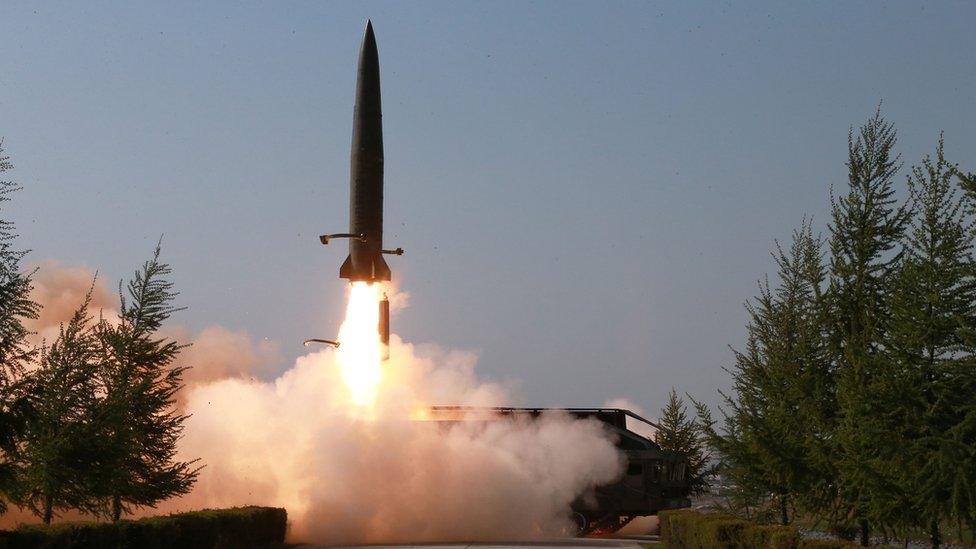
North Korean state media confirmed that a "strike drill" was overseen by leader Kim Jong-un
North Korea has fired two short-range missiles in its second weapons test in less than a week.
The missiles fired from the north-western city of Kusong travelled 420km (260 miles) and 270km towards the east.
North Korean state media confirmed that Thursday's "strike drill" was overseen by leader Kim Jong-un, but did not specify the weapons fired.
The test came hours after a top US envoy arrived in South Korea for talks on how to revive nuclear negotiations.
North Korean news agency KCNA quoted Mr Kim as saying that the "genuine peace and security of [North Korea] are guaranteed only by the strong physical force capable of defending its sovereignty".
Analysts say the North is trying to increase pressure on the US over its failure to make concessions.
Responding to the launch, US President Donald Trump said authorities were looking at it "very seriously".
"I know they [North Korea] want to negotiate... but I don't think they are ready to negotiate," he said. "We'll see what happens. Nobody's happy about it."
A meeting in Vietnam between Mr Kim and Mr Trump ended without agreement in February, with the US insisting North Korea give up its nuclear programme and Pyongyang demanding sanctions relief.
What do we know about the latest firing?
The two missiles were fired at about 16:30 local time (07:30 GMT) on Thursday and reached an altitude of about 50km before falling into the sea, South Korea's Joint Chiefs of Staff said in a statement.
They were launched from Kusong, some 160km from the capital, Pyongyang.
On 4 May the North fired several short-range missiles, the first such test since it launched an intercontinental ballistic missile in November 2017.
The tests should not come as a surprise as North Korean state media has repeatedly shown its frustration with recent joint US-South Korea military exercises, BBC Seoul correspondent Laura Bicker reports.
Pyongyang has also warned Washington that its patience to do a deal involving the easing of sanctions will not last long before it takes what Mr Kim has described as a "new path", our correspondent adds.
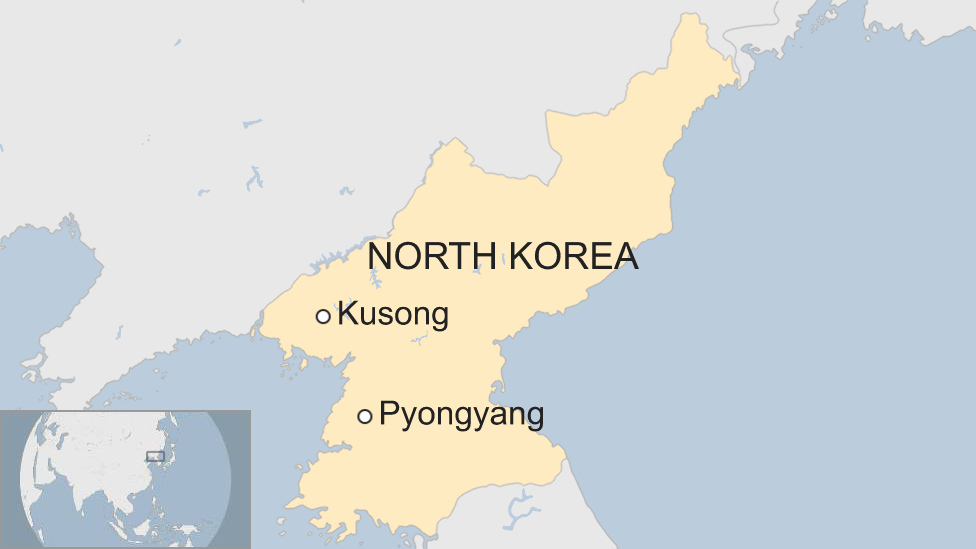
South Korea's presidency said the launches were "very worrisome" and unhelpful for efforts to reduce tensions.

A calculated provocation

With these latest North Korean missile tests Pyongyang is beginning to establish a pattern.
A programme of tests is clearly underway; the aim, to send a clear diplomatic signal to the Americans (and to Seoul - it is South Korea that short-range systems can target) that the North's patience is running out.
Last weekend North Korea tested a new short-range ballistic missile that flew some 200 km, though experts believe its actual range may be well in excess of that.
The specific type of weapon tested in this more recent episode is not yet clear.
Pyongyang is being careful to avoid testing inter-continental range systems that would breach its understanding with the Americans.
But this "informal deal" only extends to the end of this year. In the absence of any diplomatic progress expect to see more North Korean tests, perhaps of longer-range systems.

What about the nuclear impasse?
Hours before the tests, US Special Representative on North Korea Stephen Biegun arrived in the South Korean capital, Seoul, to discuss getting denuclearisation talks back on track amid rising tensions between the countries since their failed summit.
He is expected to discuss ways to provide humanitarian food aid to North Korea amid reports that it had suffered its worst harvest in decades, leading to chronic food shortages.
Last year, Mr Kim said he would stop nuclear testing and would no longer launch intercontinental ballistic missiles.
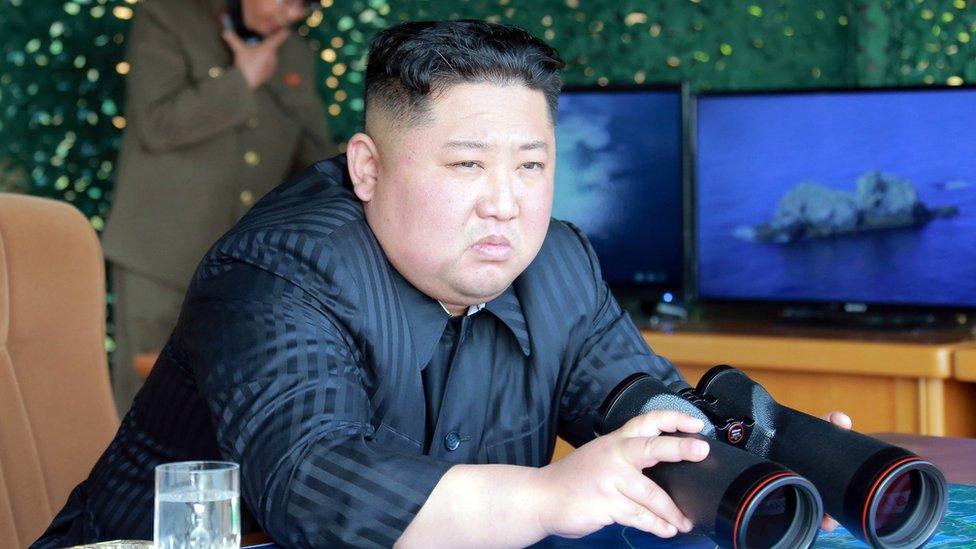
North Korea's leader Kim Jong-un supervised last week's firings
Nuclear activity appears to be continuing, however, and satellite images of North Korea's main nuclear site last month showed movement, suggesting the country could be reprocessing radioactive material into bomb fuel.
The country claims it has developed a nuclear bomb small enough to fit on a long-range missile, as well as ballistic missiles that could potentially reach the US mainland.
In other developments:
North Korea's ambassador to the UN Human Rights Council said the country - accused of serious human rights violations - guaranteed "rights to life and fundamental freedoms" but that sanctions were impeding people from enjoying them
Also at the UN council, the US urged North Korea to dismantle its political prison camps and free all 80,000-120,000 inmates
The US halted efforts to retrieve the remains of its troops killed during the 1950-1953 Korean War amid a breakdown in communications following their failed summit
- Published5 September 2023
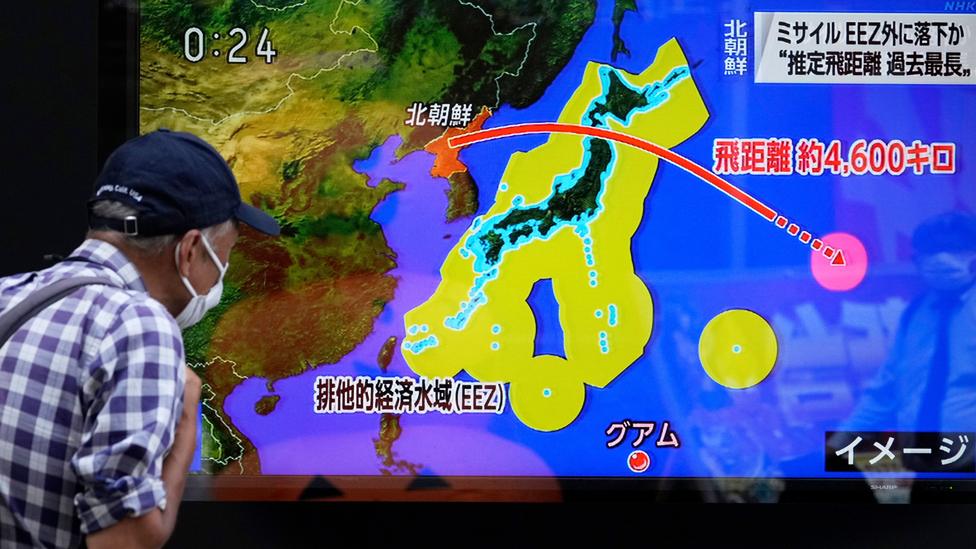
- Published9 May 2019
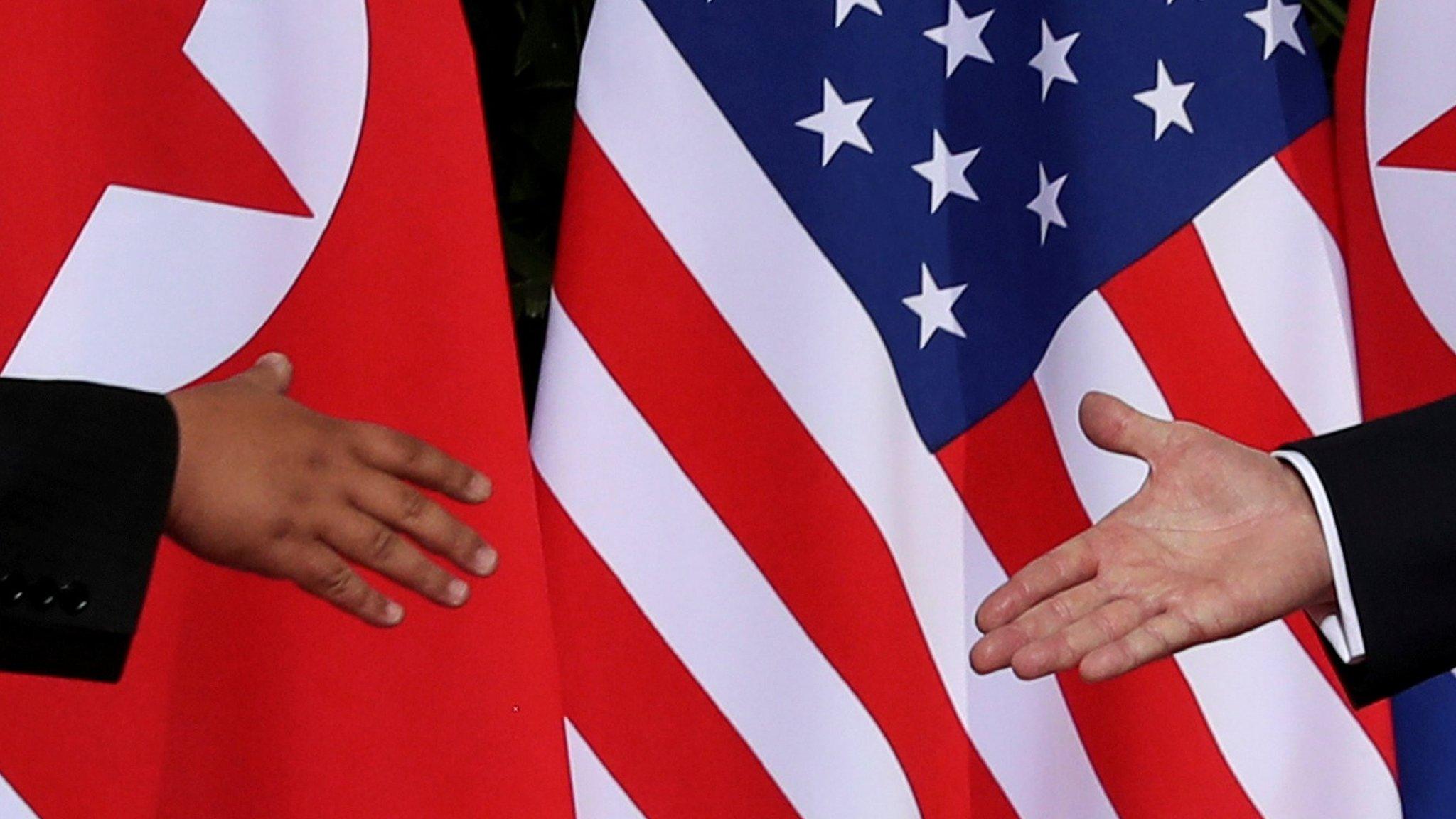
- Published3 May 2019
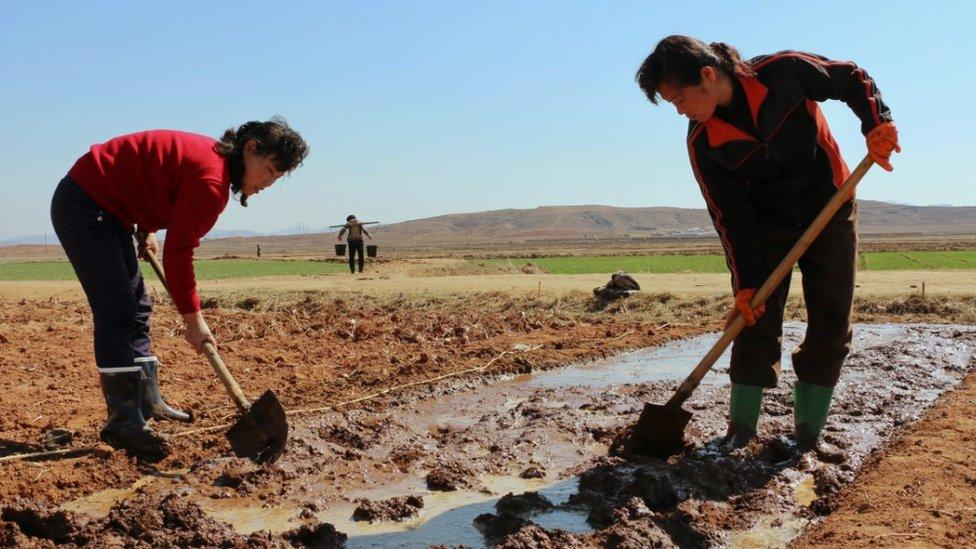
- Published24 February 2019

- Published18 February 2019
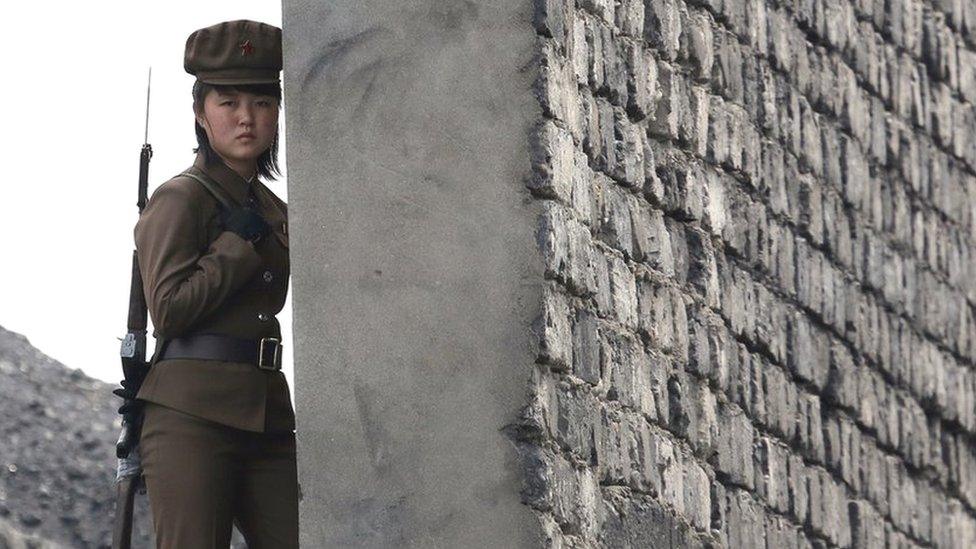
- Published26 September 2017
